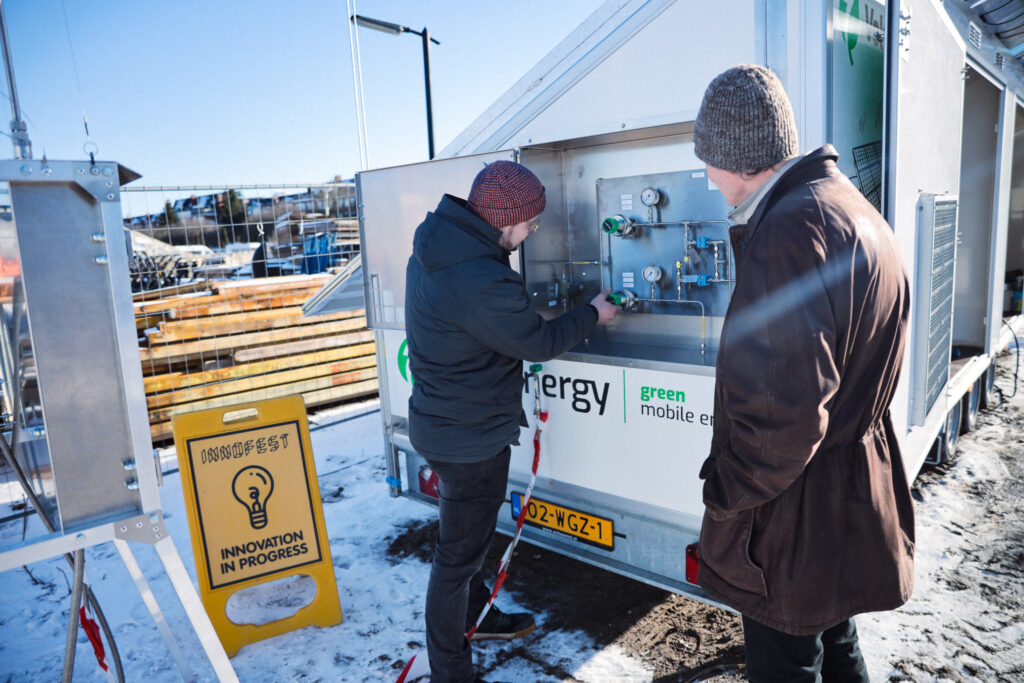Volta Energy is taking the first step towards zero-emission energy with their hydrogen generators. During ESNS, they supplied power to the nightliner bus in which BumaStemra gave workshops.
Jeroen Clement and Thomas Tikken from Volta Energy found the test trajectory very valuable: “We had some challenges with the permit application. We had not experienced that before, so that provided a lot of useful information. In the future, we have to make sure that we start the application earlier, also to coordinate everything properly with the fire brigade. But in the end it was there, so it went well.” Getting everything logistically arranged was also an interesting test: “With a diesel generator, you can fill up the fuel yourself, but for hydrogen you need external parties. How we can achieve that in the short term was good to test.”
An unexpected situation arose when connecting and testing the generator. “It was convenient that the weather was cold, because we had purchased components that seemed leak-proof in previous tests. But because of the cold, they started to leak a little. That is probably because steel shrinks when it gets cold, we had not anticipated that. Fortunately, our own material remained leak-proof. With these results, we will go back to suppliers of certain components: how is this possible, how can we prevent this in the future? The generator worked great, we were able to test all functionalities well.” The client was also satisfied, because he gained good insight into how much power he uses: “With a diesel generator, you cannot see how much you use, with us that is monitored very precisely. In the end, the bus used much less than expected.”
The test also attracted the attention of local authorities. “The Municipality of Assen and the Municipality of Groningen were interested and want to talk to us.”
After a successful test at ESNS, Volta provided the energy for the food trucks during the FBK Games. Volta wanted to gain more insight into the autonomous operation, the response to environmental changes and the performance of the Energy Management System.
The test was a success and the system functioned as expected. There were some minor technical issues that need to be resolved for a broader deployment. Participants of the event appreciated the sustainable nature of the energy supply and indicated that they were willing to pay a little more for this green energy solution. Volta will work on the technical optimization and improving the communication about the operation and benefits of the system.
This research has been made possible by the Arnhem and Nijmegen University of Applied Sciences
